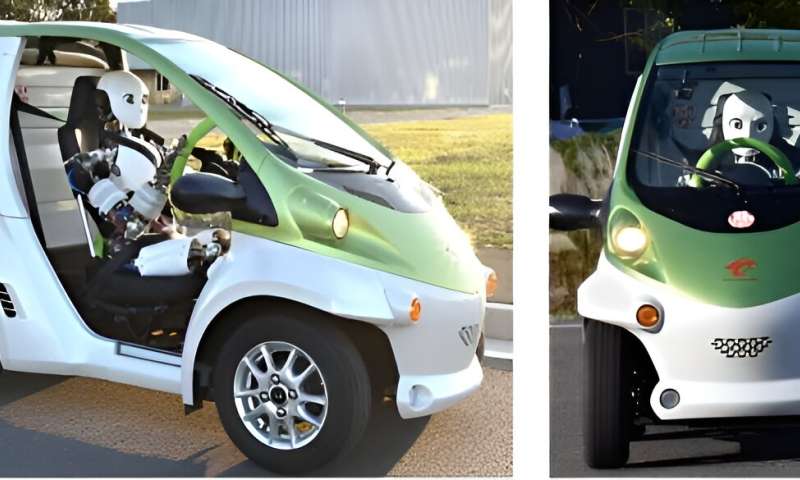Best of Last Week—Frost on Mar's tallest volcanoes, a car-driving robot and risk equations for lowering statin use

It was a good week for space science, as an international team of researchers used high-resolution color images from the Bernese Mars camera CaSSIS onboard the European Space Agency's ExoMars Trace Gas Orbiter spacecraft to detect frost on the solar system's tallest volcanoes on Mars. Also, a pair of astrophysicists at Harvard University, working with a colleague from Johns Hopkins University, calculated the likelihood that Earth was exposed to cold, harsh interstellar clouds 2 million years ago. And a team with members from the Space Telescope Science Institute, SOFIA-USRA, NASA Ames Research Center and Harvard & Smithsonian's Center for Astrophysics, used new data from NASA's Hubble Space Telescope and the retired SOFIA, along with archival data, to find surprises around a star that erupted 40 years ago.
In technology news, a team of roboticists at the University of Tokyo, took a new approach to autonomous driving—instead of automating the entire car, they just put a robot in the driver's seat. And another team of engineers affiliated with several institutions in the U.S. developed advanced AI-based techniques that can be used to scale up solving complex combinatorial optimization problems.
Also, a team of mechanical engineers at the University of Alberta paired up with a renewable energy company to design and test wind turbines based on the wings of the world's heaviest soaring bird: the Andean condor. And a team of computer scientists from the University of California, Berkeley, Stanford University and CMU demonstrated an open-source generalist model for robot object manipulation—called Octo, it could allow robotic systems to effectively manipulate a wide range of objects.
In other news, a team of health and nutritional researchers at the University of São Paulo, working with colleagues at Imperial College London and the International Agency for Research on Cancer, found evidence of a link between plant-based, ultra-processed foods and a higher risk of cardiovascular disease. Also, a team with members affiliated with several institutions in Russia discovered a 'mammoth graveyard' in Siberia, revealing 800 years of human interactions with the woolly beasts.
And finally, a combined team of medical researchers from the University of Pittsburgh, Beth Israel Deaconess Medical Center and the University of Michigan found evidence that statins for heart disease prevention could be recommended for far fewer Americans if a new risk equation is adopted.
© 2024 Science X Network